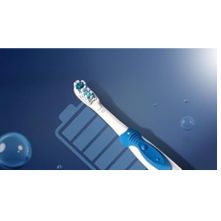Get A Quote
BIS Certification for Electric Toothbrush IS 302 (Part 1): 2024

Battery-operated oral hygiene devices
such as electric toothbrushes, flossers, and gum massagers are increasingly
popular in modern personal care routines. To ensure consumer safety and product
reliability, the Ministry of Commerce and Industry has issued the Safety of
Household, Commercial and Similar Electrical Appliances (Quality Control)
Order, 2025.
Under this order, all DC-supplied/
battery-operated toothbrushes and other oral hygiene appliances must conform to
the Indian standard IS 302 (Part 1): 2024, which is harmonized with the international
standard IEC 60335-1: 2020. These products must bear the Standard Mark, granted
by the Bureau of Indian Standards (BIS), under Scheme I of Schedule II to the
BIS (Conformity Assessment) Regulations, 2018.
What is BIS Certification for Battery-Operated Oral Hygiene Appliances?
The BIS Certification for
battery-operated toothbrushes and other oral hygiene appliances guarantees that
these products meet rigorous safety and quality benchmarks. Devices that comply
with the standards are awarded the ISI Mark for battery-operated toothbrush and
other oral hygiene appliances, a symbol of excellence and trust.
The Indian standard IS 302 (Part 1):
2024 ensures safety in electrical design and insulation, protection from
moisture and heat, mechanical durability, and safe interaction with users in
various operating conditions. The ISI Certification for battery-operated
toothbrushes and other oral hygiene appliances is critical not only for
consumer safety but also for manufacturers aiming to build credibility and gain
market access in India.
Why the ISI Mark Matters
Earning the ISI Mark certification for
battery-operated toothbrush and other oral hygiene appliances provides:
● Legal market access in India
● Assurance of product safety and
performance
● Enhanced consumer trust and
brand reputation
● Eligibility for institutional
and government procurement
Compliance with the Indian standard
for battery-operated toothbrush and other oral hygiene appliances is mandatory.
Products not conforming to this standard are not permitted for sale or
distribution in India. Non-compliance can result in severe penalties under
Section 29 of the Bureau of Indian Standards Act, 2016 (11 of 2016), including
fines and legal prosecution.
Steps to Obtain BIS Certification
To comply with IS 302 (Part 1): 2024
and earn the ISI certification, manufacturers must follow a structured
certification process:
- Application
Submission: Submit the completed application
form with necessary documentation to BIS.
- Document Review: BIS evaluates the submitted documents to verify accuracy and
completeness.
- Factory Inspection: BIS officials conduct on-site inspections to assess
manufacturing processes and quality control systems.
- Sample Testing: Product samples are collected and tested at BIS-approved
laboratories to verify compliance with Indian standards.
- Certification Grant: Upon successful inspection and testing, the BIS issues the certification, allowing the use of the ISI Mark.
Documents Required for BIS Certification
To apply for ISI
Certification for DC-supplied/ battery-operated toothbrushes and other oral
hygiene appliances for dental care, manufacturers must provide the following
documents:
● Completed application form
● Detailed manufacturing process
information
● Quality control plans and test
reports
● Factory layout and equipment
details
● Product specifications and
technical details
● Business registration proof
● Declaration of conformity to
Indian standards
Additional documentation may be required based on product specifications and environmental regulations.
BIS Documents For Domenstic and Foreign Manufacturer Check
BIS ISI Mark Certification Costing And Timeline
To Know The Process in Detail, Please Visit:
Under BIS Registration Products ISI and CRS
Conclusion
As consumers increasingly rely on
DC-supplied/ battery-operated toothbrushes and other oral hygiene appliances
for dental care, ensuring their safety through standardized certification
becomes essential. The BIS Certification for DC-supplied/ battery-operated
toothbrush and other oral hygiene appliances not only safeguards consumer
health but also assures compliance with Indian regulatory frameworks.
Manufacturers must prioritize
acquiring the ISI Certification to operate legally and build a trustworthy
brand. Compliance with the Indian standard for battery-operated toothbrushes
and other oral hygiene appliances is more than a legal requirement—it is a
commitment to delivering safe, high-quality products that users can rely on
daily.
Free Call Back
Latest News & Update
📅 BIS Critical Component List (CCL) Updates for Solar PV Modules
🕒 BIS Fee Concessions for MSMEs and Startups | EVTL India
📅 Guidelines for Implementation of Essential Requirements for Security of CCTV
🕒 Omnibus Technical Regulation (OTR) Amendment Order, 2025
🕒 Extension of Timeline for Filing Annual Returns by Battery Producers
📅 Extension of Timeline for Filing Quarterly and Annual Returns for E-Waste
🕒 Extension of Concurrent Running Period for IS 302-1: 2008 and IS 302 (Part 1): 2024
🕒 BIS Guidelines for Grant of Licence (GoL) | EVTL India
📅 CPCB Guidance on filing of Application, Fees and more
🕒 CPCB Notification on Labelling of Plastic Packaging
📅 Mandatory Compliance for Input Materials of Steel and Steel Products for Imports
🕒 BIS Guidelines for Scheme-X Certification for OTR-Regulated Products
📅 BIS Upgrades Product Certification License Numbers to 10-Digit Series
🕒 BIS Certification No Longer Mandatory for 14 Chemical & Polymer Categories
Why Choose EVTL INDIA
Expertise in Indian Regulatory Standards
End-to-End Support
Trusted by Top Indian & Global Brands
Fast Processing & Transparent Pricing
Strong Liaison with Indian Authorities
Company Profile















